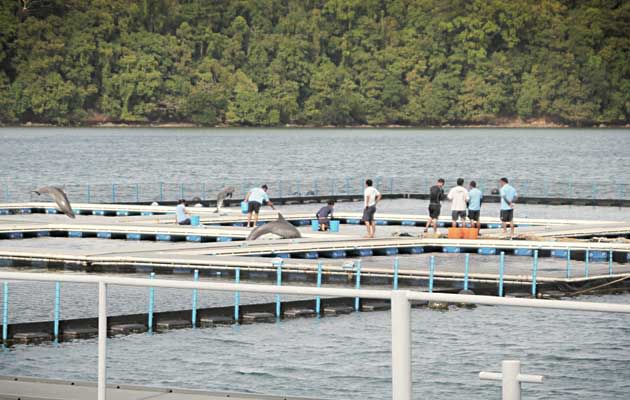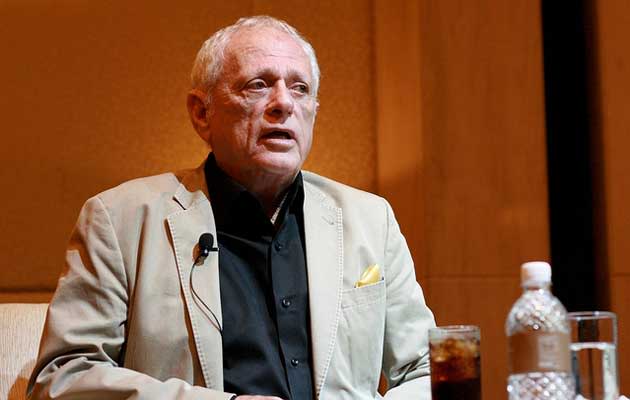‘Not too late for RWS to release dolphins’

By Daphne Seah
Dolphin trainer turned anti-captivity activist Richard O' Barry asserted on Tuesday that it is "not too late" for hotel-casino operator Resorts World Sentosa (RWS) to release 25 wild-caught Indo-Pacific bottlenose dolphins.
RWS, which plans to exhibit the dolphins in its eight hectare Marine Life Park (MLP), has become the target of Animal Concerns Research and Education Society's (Acre's) campaign to free the mammals from captivity, and O'Barry is taking part in the latter's initiative.
In a public dialogue session organised by Acres on Tuesday evening, O'Barry, who also belongs to Earth Island Institute and stars in the Oscar Award-winning documentary "The Cove", shared that he has successfully freed dolphins in Georgia, Guatemala and Russia.
An MLP spokesperson said they are unaware of O' Barry's exact successful history but they are certain "track record of dolphin reintroductions is patchy at best and we will be gravely irresponsible to even consider that (releasing them)".
When asked how well released cetaceans readapt back in the wild and what steps RWS can take should they change their mind, O' Barry said he had no data with him but that there is a protocol in releasing dolphins.
However, he admits, "Most but not all can be rehabilitated, because of what we do to them".
MLP's spokesman said the park's priority now "is to deliver a facility that will make a significant contribution to marine conservation and research".
He reiterates, "We have long said that we believe our dolphins will play a significant and meaningful role for marine conservation in our Marine Life Park".
Disputing RWS' claims about doing mankind and dolphins a favour, O' Barry said, "In a world where so much that is wild and free has already been lost to us, we must leave these beautiful mammals free to swim as they will and must. They do us no harm and wish us none and we should leave them alone".
According to the International Union for Conservation of Nature (IUCN), a leading authority on the environment and sustainable development, threats facing Indo-Pacific bottlenose dolphins include live capture for oceanariums and catching more might drive species like them towards extinction.
IUCN said that "RWS' preference (Indo-Pacific bottlenose dolphins) as a captive display species makes them vulnerable to depletion from such catches."
At the dialogue session, some people from the over-500 strong crowd of local students, teachers, animal lovers and foreign conservationists kept asking for practical steps they can take to help.
Besides "keep telling people and creating awareness", O'Barry suggested, "Don't buy tickets for the dolphin show or activities. Consumers have the power".


